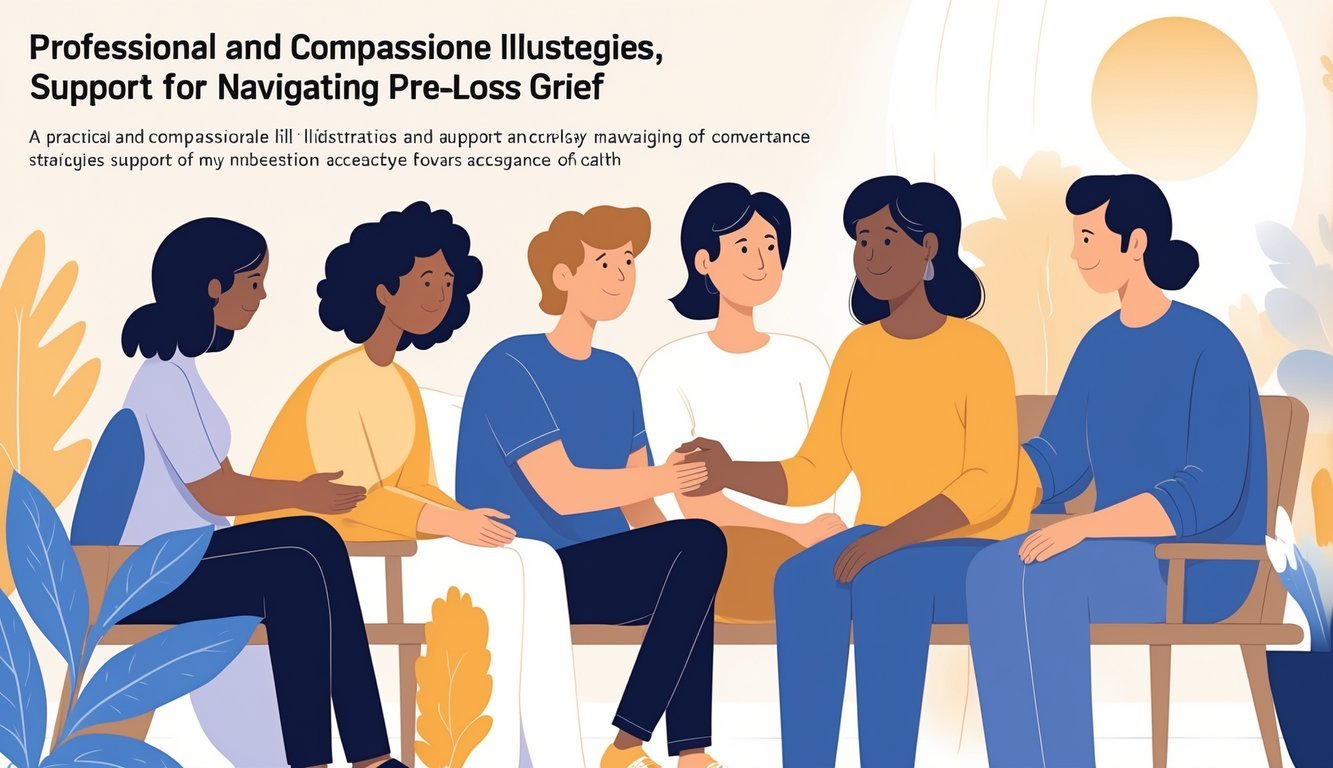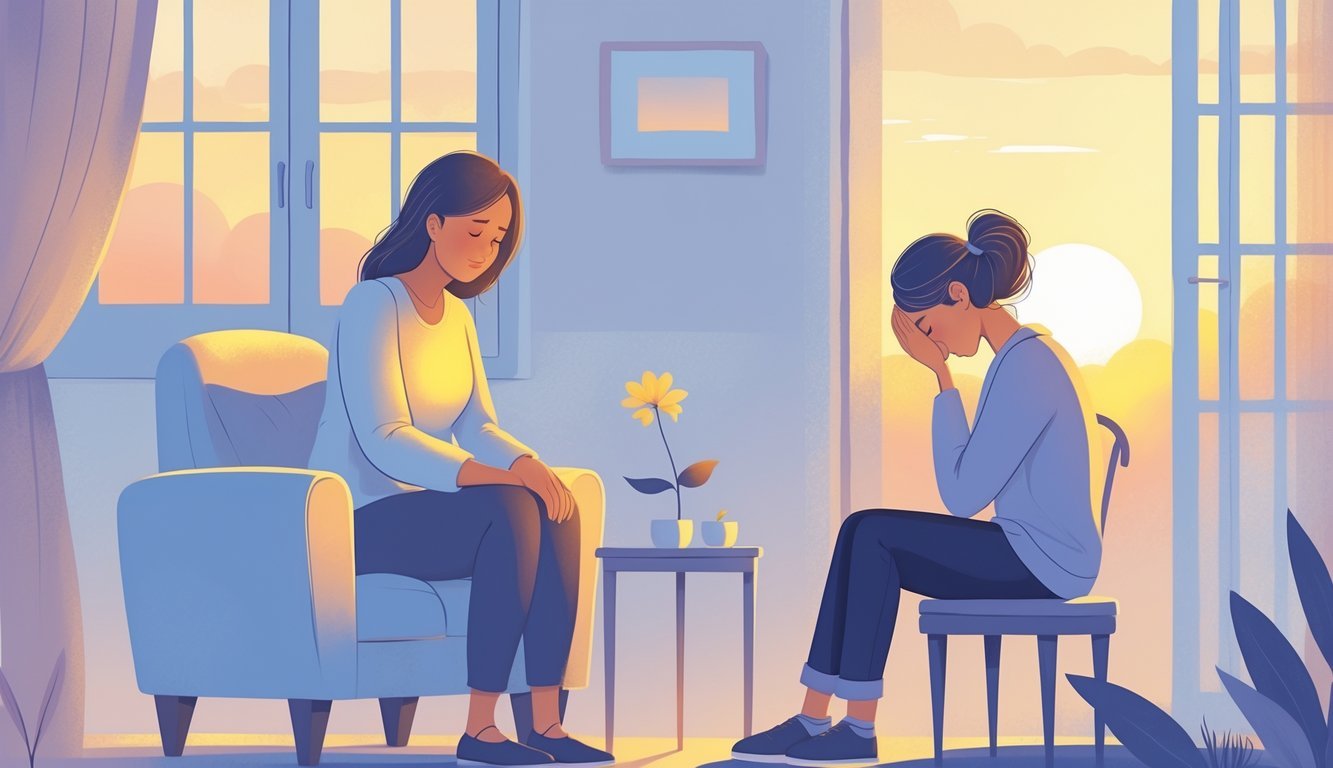PsychNewsDaily Publishers
100 Summit Drive
Burlington, MA, 01803
Telephone: (320) 349-2484
PsychNewsDaily Publishers
100 Summit Drive
Burlington, MA, 01803
Telephone: (320) 349-2484
Pre-loss grief occurs before a loved one’s death, involving emotions like sadness and fear. Talking about these feelings and seeking support can aid coping.

Accepting death—yeah, it’s probably one of the toughest things you’ll ever deal with, especially when you know it’s coming soon. A new study suggests that understanding and working through pre-loss grief—the feelings that show up before a loss—can help you get ready emotionally and maybe even find a little peace before the final goodbye. This kind of grief often creeps in before death and can really shake you up, both in your head and your heart.
You might notice sadness, fear, or confusion as you watch a loved one’s health change. If you learn to spot these feelings and actually talk about them, it can really help.
Letting yourself feel these emotions and finding support makes this tough time a little more bearable.
You don’t have to do this alone. There are some pretty straightforward ways to cope that might bring comfort, or at least a bit of meaning.
If you know what to expect and share your feelings, it can make accepting what’s coming a little less overwhelming.

Figuring out how to accept that someone you love is dying isn’t quick or simple. You might feel sadness, fear, anger, or even, weirdly, moments of peace as you face what’s ahead.
If you pay attention to what’s happening inside you during this time, it can help you cope.
Pre-loss grief kicks in before a death actually happens. It’s the sadness, fear, and sense of loss you get when you know someone close to you is dying.
People caring for someone with a serious illness—like dementia or cancer—often feel this kind of grief.
You’re not grieving the loss itself yet, but the idea of it. That can hurt and stress you out, but it also gives you a chance to get ready, at least a little.
Pre-loss grief can get confusing, since you’re stuck between hope and sadness.
Anticipatory grief is a specific kind of pre-loss grief. It shows up when you expect a death soon, so you have time to face your feelings before the loss.
That’s different from sudden grief, which hits after an unexpected death.
When you know what’s coming, you might bounce between acceptance, denial, or anger. This mix of feelings gets you ready for the changes ahead.
Unlike complicated grief, which drags on and causes a lot of distress, anticipatory grief can actually help you adjust—if you let yourself feel it all.
Accepting death before it happens? Definitely not easy. But it can help you cope.
Acceptance means seeing that death is near and letting yourself feel sadness, fear, or anger without trying to fight those feelings.
When you accept what’s happening, you might find little moments of peace. This isn’t about giving up on your loved one, but about understanding that life has its cycles.
Acceptance can ease hopelessness and help you focus on the time you still have together.
During pre-loss grief, you’ll probably go through lots of emotions—denial, anger, bargaining, depression, and acceptance, kind of like the Kübler-Ross stages.
At first, you might deny what’s happening or get angry at how unfair it all feels.
Bargaining might show up as hoping for a miracle or trying to make deals in your head. Depression can bring a deep sadness or a sense of hopelessness.
You might feel scared about life after the loss. All of these are normal. If you know these stages, it’s easier to understand your reactions and remember that healing isn’t instant.

When you’re expecting to lose someone, it hits your emotions, body, and everyday life. You’ll probably try different ways to manage your feelings, reach out to others, and take care of yourself while you grieve.
If you know a loss is coming, it’s totally normal to feel waves of sadness and anxiety. You can try a few simple things to help.
Deep breathing, taking breaks, and setting small goals each day can reduce stress.
Keeping a routine gives your day some structure. Try not to lean on alcohol or drugs—they usually make grief worse.
If the sadness feels too heavy or sticks around too long, you might need professional help.
Crying and feeling sad are part of the process. Let yourself feel those things without judging yourself.
You really don’t have to handle pre-loss grief on your own. Family and close friends can offer comfort and understanding.
If you share your feelings, it can help you feel less alone.
Counselors and mental health pros can walk you through tough emotions and teach you coping skills that fit your situation.
A lot of caregivers find grief support groups helpful, since others there truly get what you’re dealing with.
Whether you talk to family, a counselor, or a group, having someone to open up to makes a difference.
Grief can drain your energy and mess with your body. You might have trouble sleeping, lose weight, or notice your health slipping.
Keep an eye on these signs and try to take care of yourself.
Aim for regular sleep, eat balanced meals, and move your body, even if it’s just a short walk or some gentle exercise.
If you ever feel so low that thoughts of suicide or intense pain show up, please get help right away from a mental health professional. You matter, too.
Doing something personal with your grief can actually comfort you. Try writing your feelings in a journal—it helps make sense of what you’re going through.
Rituals, like lighting candles or making a memory box, can help you feel connected to your loved one.
Music is powerful, too. Listening to or playing songs that bring you peace, or even let you cry, can make a difference.
These activities let you process grief at your own pace, which honestly is so important for healing.

You might wonder what feelings to expect, how to handle them, or if grief before a loss will affect you later. Knowing common symptoms, some helpful coping tips, and even comforting words can make this time a little less lonely.
The five stages are denial, anger, bargaining, depression, and acceptance. You’ll probably move through them in whatever order they come.
Let yourself feel every emotion. Talk with people who understand, and learn about the process—it helps you get ready and find a bit of peace along the way.
You might feel sadness, anger, anxiety, or guilt. Trouble sleeping and losing your appetite are pretty common, too.
Sometimes people feel numb or can’t focus. Even if these feelings seem intense, they’re normal.
Talking to friends, family, or counselors can make the pain a little lighter. If you know what to expect, it can ease some of the fear.
Take care of your health—rest, eat, move when you can. Express your feelings in writing, art, or by just saying them out loud.
“You are stronger than you think.”
“It’s okay to not be okay.”
“Grief is just love with no place to go.”
Sometimes, simple words like these help you feel less alone and bring a little hope.
Yes, lots of people grieve before death. It usually feels like a mix of sadness and worry about what’s ahead.
You might cry out of nowhere or feel numb. Some people start saying goodbye or share memories before the loss even happens.
Anticipatory grief might actually soften the pain after someone passes, since you’ve already started letting go in your heart.
Still, it can feel pretty confusing. You might notice a jumble of emotions during mourning.
Honestly, everyone handles this stuff differently. Take your time and let yourself heal however you need to.